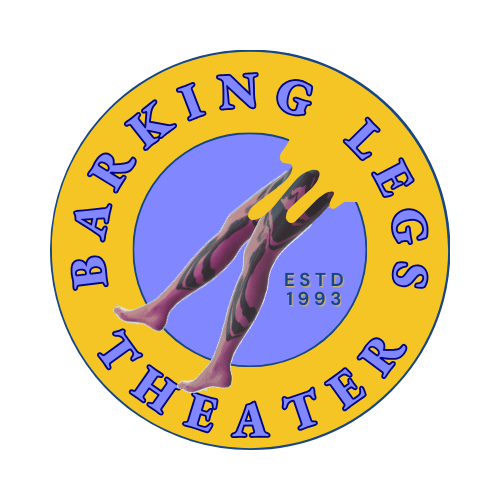Bill Orcutt Interviewed in the Pulse
Thanks to Ernie Paik and the Chattanooga Pulse for this fascinating interview with guitarist Bill Orcutt, who will be performing Monday, March 30 at the Legs. Bill will perform solo and in a duo with percussionist Bob Stagner. If you saw a man like Bill Orcutt—a fellow in his early 50s with a graying beard and a beat-up acoustic guitar—take the stage, a fair guess might be that he’d play folk, blues or strummy singer/songwriter Americana. You’d be wrong. Very wrong.Orcutt is an anomaly, worthy of having a record-store genre album-divider card with his name on it, and simply deeming him “folk” or “blues” would be inaccurate and a great disservice. Rarely does the acoustic guitar get played so explosively and unpredictably than when Orcutt handles his vintage six-string Kay—strung with only four strings—taking the instrument, which looks like it could buckle under the pressure at any moment, to its absolute limits.With Orcutt’s breathtakingly free playing style and his affinity for subverting familiar tunes, predecessors and fellow mavericks such as Eugene Chadbourne and Derek Bailey may come to mind, but Orcutt has articulated his own distinctive, singular method with many idiosyncratic elements, including a violently percussive plucking style, a wide and fast vibrato for sustained notes and an occasional frantic scampering that borders on noise.Orcutt developed his chops by adapting to the unconventional style of his partner, drummer/vocalist Adris Hoyos, in the ’90s uncompromising, iconoclastic underground outfit Harry Pussy, whose fans included Sonic Youth and Sebadoh and which influenced a new generation of noise-rock bands. After a decade-long hiatus after that band’s break-up, Orcutt emerged as a solo guitarist with the acclaimed 2009 album A New Way to Pay Old Debts, and in advance of his March 30 show at Barking Legs Theater, Orcutt took the time to answer some questions via email.The Pulse: Your album A History of Every One took oft-covered songs from the canon of popular American music and ran them through your technique. What was your intent behind this?Bill Orcutt: I wanted to start playing material other than my own. For History I decided to do American songs and (for the most part) songs that were widely known and time-worn and from as many genres as possible. I wanted to include “debased” pop from my youth like “Ballad of Davy Crockett” as well as beloved traditional songs from the folk canon.I had some weird fictional Kate Smith/Burl Ives thrift store record in mind that could somehow include religious songs, labor songs, Disney songs, holiday songs, minstrel songs, blues songs, patriotic songs, university fight songs, protest songs, etc., just the whole ugly beloved mess of American music. So I bought a fake book and went to work building arrangements around the vocal melodies. I was trying to find my own way into this music.TP: You seem to take some traditional sources and twist them into non-traditional music. However in the traditional music world, many put a high value on the notion of “authenticity.” What are your thoughts on the idea of authenticity in music?BO: Authenticity in music usually says more about the listener than the performer. There are stories about European promoters in the ’50s or ’60s who taught American folk/blues musicians how to perform in the “authentic” manner that their audiences expected. John Hammond dressed Big Bill Broonzy (who lived in Chicago and normally performed in suits) in farmer’s overalls for his famous “Spirituals to Swing” concert at Carnegie Hall.When Alan Lomax first met Muddy Waters, he asked him for his repertoire. Muddy listed as many pop numbers as blues songs, but only the blues tunes were deemed “authentic” enough by Lomax to record, despite the fact that Muddy had learned all his material from records. Generally there’s nothing authentic about authenticity in music. It’s a kind of theatricality that conforms to an audience’s expectations and prejudices.TP: Where do you feel like your place in the music world is?BO: The music I play has elements of many things filtered through my sensibility and experience, but it doesn’t really fit into any clear category. To my way of thinking that seems like a good thing, but it has its own challenges in the real world where adherence to a recognized tradition is a requirement for participation in the larger world of festivals, mainstream press, etc. There’s not really much to be done about it though, in the end, you just have to play it the way you feel it.Bill Orcutt with Bob StagnerMonday, March 30, 7:30 p.m.$10Barking Legs Theater1307 Dodds Ave.barkinglegs.org
